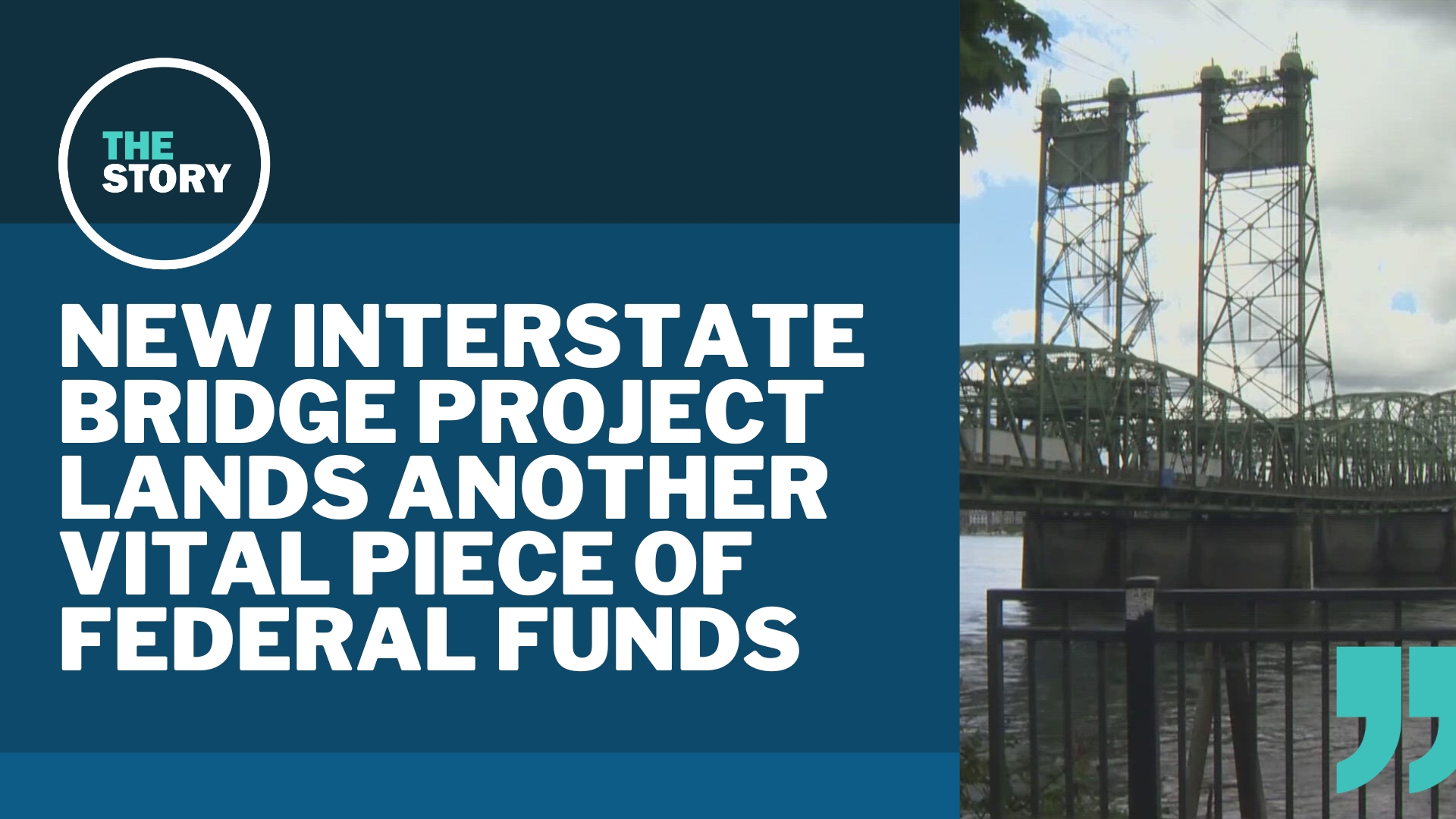PORTLAND, Ore. — The Interstate Bridge Replacement (IBR) project will receive $1.499 billion from the federal Bridge Investment Program, members of Washington's congressional delegation announced Friday. The award comes about six months after the project received $600 million from the federal Mega grant program, bringing the total federal investment to about $2.1 billion.
The project aims to replace the century-old twin bridges that carry Interstate 5 over the Columbia River, building a new pair of bridges that conform to modern freeway standards and will be capable of surviving a major earthquake. The new bridges will also carry light rail, extending TriMet's MAX Yellow Line across the river to reach Vancouver.
"This is a monumental win for Southwest Washington — now, with the biggest federal transportation award in Washington state history, replacing the I-5 Bridge is finally going to be a reality," Senator Patty Murray said in a statement.
IBR's initial cost breakdown put the total cost of the project at about $6 billion, with an expectation that Oregon and Washington would each contribute $1 billion and that a trio of federal programs would contribute a combined $2.5 billion, with the remaining cost to be covered by tolls.
Both states have already followed through on IBR's funding requests, and Sen. Maria Cantwell indicated that Friday's Bridge Investment Program grant will give the project enough of a financial foundation to enter its construction phase, which is planned to start in early 2026.
"The project can now start hiring the construction companies and workers that will boost the local economy and build this vital interstate artery and make a decades-long dream a reality," she said in a statement.
The Mega Grant and Bridge Investment programs were both created as part of the $1 trillion infrastructure package that President Joe Biden signed in 2021, each endowed with billions of dollars to be distributed to major projects through annual competitive grant applications over the next few years.
Both of Washington's senators helped shape the package, and they and other Pacific Northwest lawmakers have been lobbying to get IBR on the Department of Transportation's radar. U.S. Transportation Secretary Pete Buttigieg toured the current bridges earlier this year, joined by lawmakers and the governors of Oregon and Washington.
"I brought Secretary of Transportation Pete Buttigieg to the bridge to show him the dire need for replacement firsthand, as well as stressing the importance of this Bridge Investment Program grant whenever we spoke," Rep. Marie Gluesenkamp Perez said in a statement. "We’re now one major step closer to getting the I-5 Bridge replaced and powering good, family-wage trades jobs in Southwest Washington."
The IBR team intends to draw on three major federal funding sources, and Friday's announcement means it has received essentially the full amount that it requested from each of those first two applications. The final piece of the federal funding puzzle is the transit-focused Capital Investment Grants (CIG) New Starts program.
The project's 2023 financial plan stated that IBR would aim to get a combined $1.5 billion from the first two grants and about $1 billion from CIG, but that it would wait to apply to CIG until the other two grant awards came through, in case they were smaller than expected and required a larger CIG request to balance out the budget.
Instead, the first two grants have netted a combined $2.1 billion, putting the project only $400 million short of the original federal funding goal. But the team still plans to apply for $1 billion from CIG, IBR Program Administrator Greg Johnson told KGW on Friday, because some of the grant money is restricted; the Bridge Investment Program money has to be spent on the bridge itself, and the CIG money has to be spent on the public transportation component.
And there's another reason to try to overshoot the financial target: the 2023 financing plan was still assuming a total price tag of about $6 billion. In recent months the IBR team has indicated that construction costs have risen and that estimate is likely no longer accurate.
"We know that there are still other funding streams that have to be secured. We know that we also have to perform another estimate to get the most up-to-date cost that we are seeing in the construction industry," Johnson said. "So we are- that will happen about this time next year. But this (grant today) is very much bringing the funding picture into focus."
Johnson said the team won't be able to complete the revised cost estimate until next year because the project has to finish the federal environmental review process first. If the revised estimate leads to a budget shortfall, the team would look for additional federal funding opportunities to fill the gap.
In the meantime, the environmental review process is still chugging along. The release of the Draft Supplemental Environmental Impact Statement — a key piece of the process where the public gets a chance to comment on the project plan — was supposed to have happened by now, but ended up getting delayed until sometime later this year.
This is a breaking news story and will be updated as more information becomes available.

